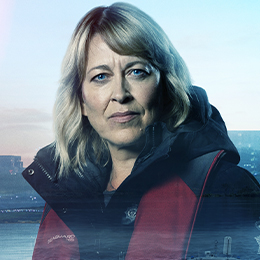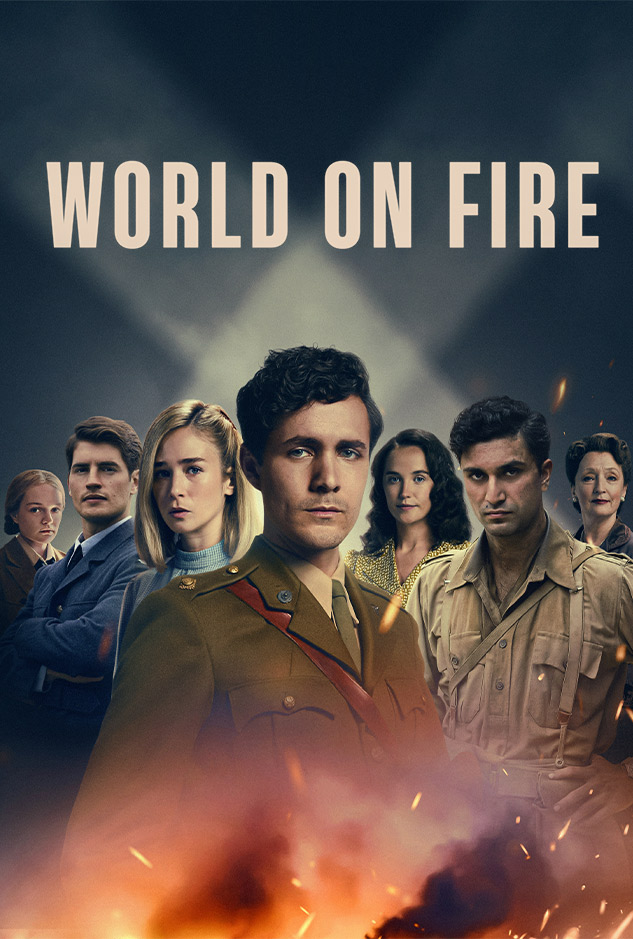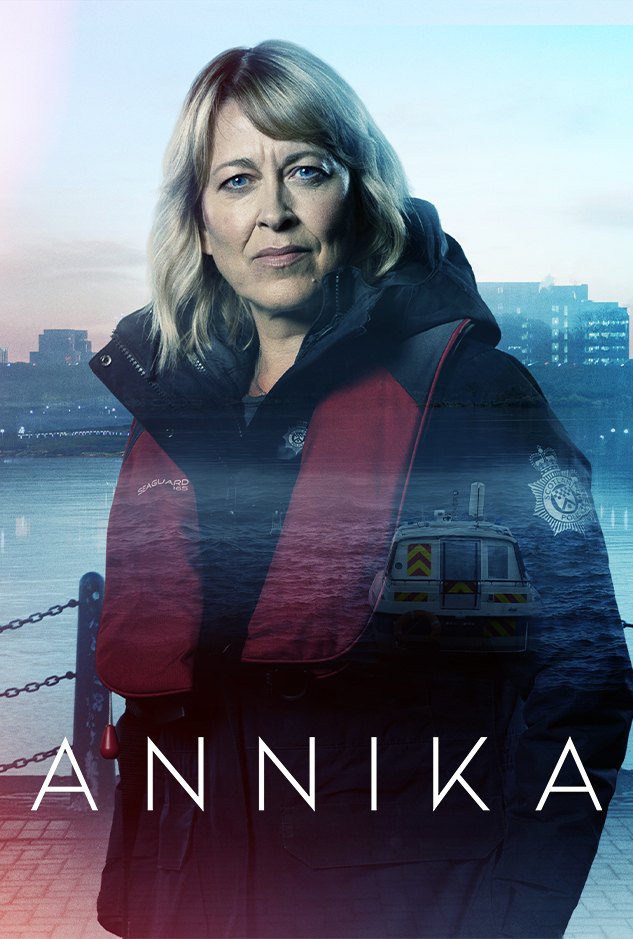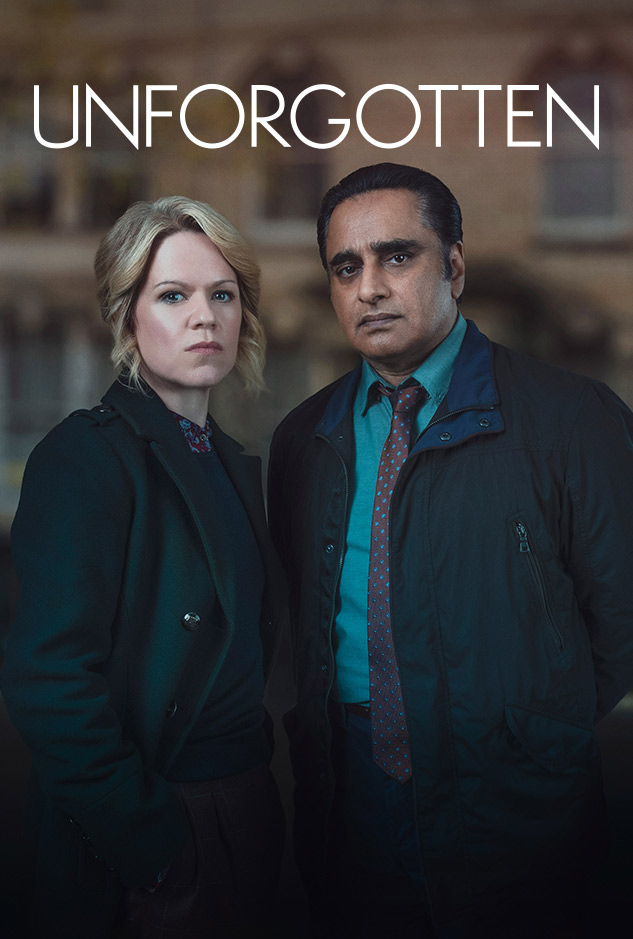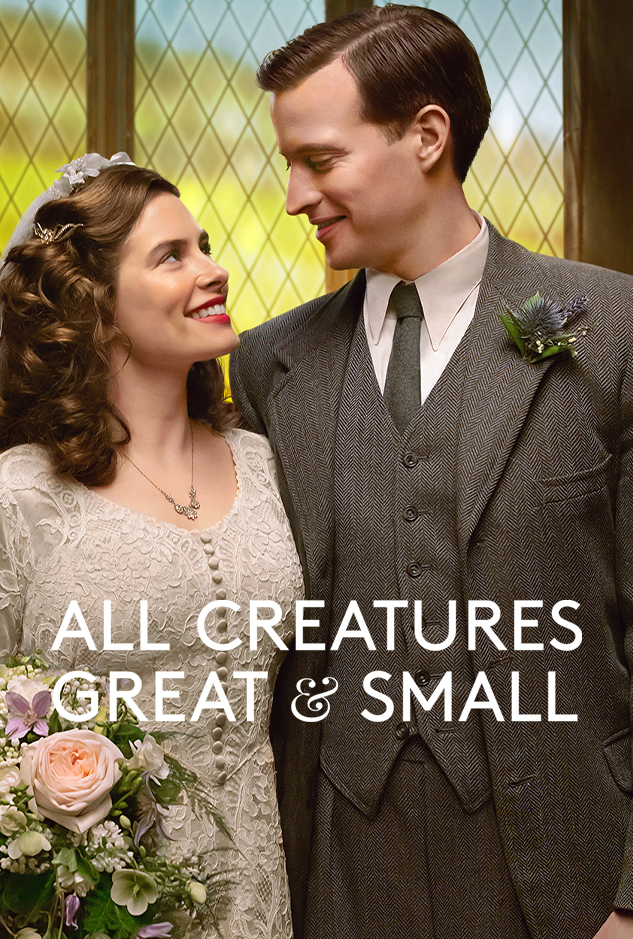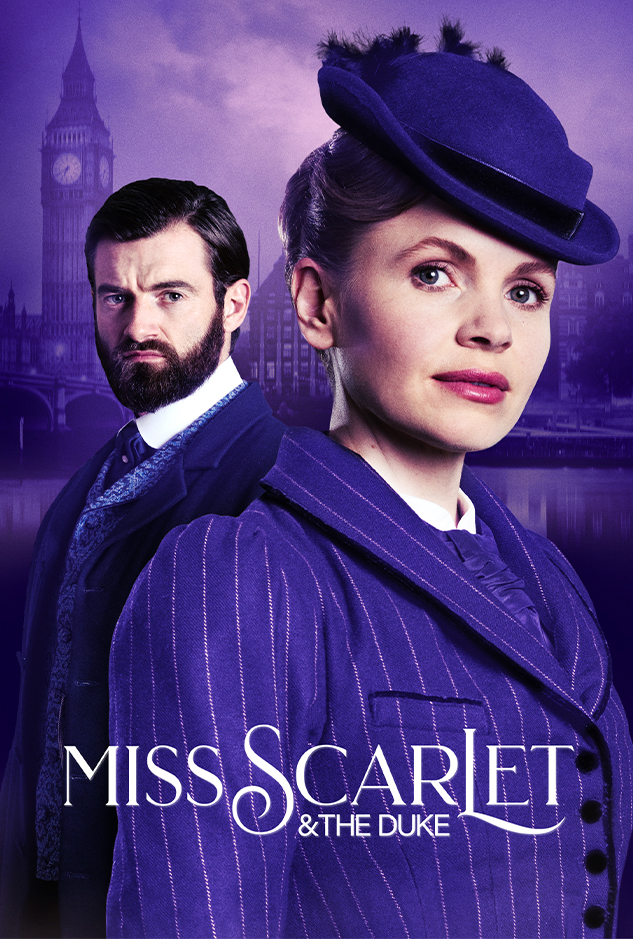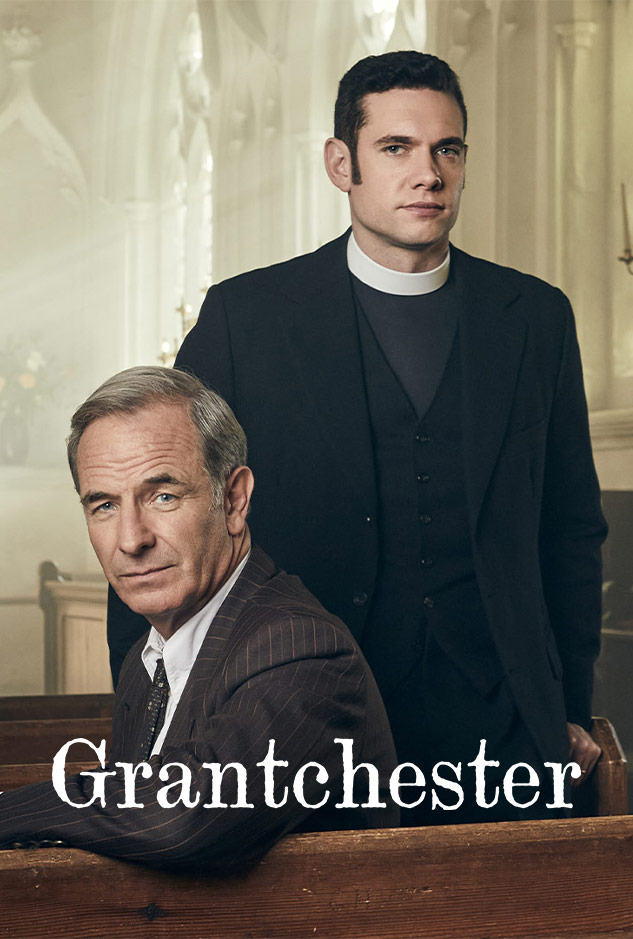Interview with Nicola Walker of Annika and Unforgotten
Fans of Annika, Unforgotten, and just about everything Nicola Walker’s ever been in, rejoice as you get the lowdown on Annika Season 2 from the star herself. In an interview with MASTERPIECE before the show’s Season 2 premiere, Walker revealed Annika insights plus much of what she loves, including on-set singing, Annika’s personality, Unforgotten co-star Sanjeev Bhaskar, breaking the fourth wall in Annika, her early days at the Edinburgh film festival, a calm day in the boat, and much more!
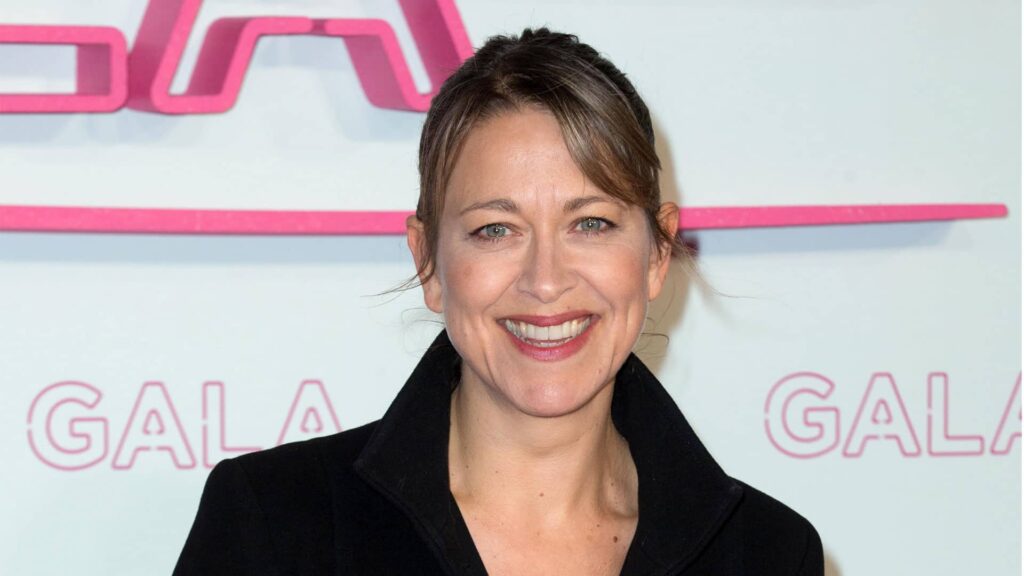

What has you excited about Season 2 of Annika?
I’m hoping that the thing I’m excited about will be exciting for the viewers as well, which is that that Nick Walker, the writer, has the second season begin approximately 10 seconds after the last season ended. You left Annika telling the audience—her friend—that Michael is the father of her daughter. So we pick her up as she’s walked out of the pub, and she’s talking to you again, and she’s trying to justify what she’s done. And she’s utilizing Nordic a particular Nordic myth, which the first episode is based around. She actually sings you a little bit of an old Nordic song. It’s beautiful and sad and very funny. And then Michael comes out and says, “We’ve got another case.” So she gets no sleep and they go straight out into another case.
And I think it’s such a great idea because you hit the ground really running. And it’s lovely for me as an actor because I can take all the emotion I felt at the end of Season 1 and I can carry it over into the next season. I really enjoyed filming those scenes, found them really moving because what you’ve got to look forward to is a woman who, 16 years ago, made a choice, and it was a personal choice, and now she put herself in a position, essentially returned to the scene of the crime, she says at one point, and she is going to have to face the music in so many ways. I love her for that.
I love her for the bravery of returning, but as a viewer of her, I also think, What are you doing? And she knows you’re thinking that about her this time. My relationship with the audience this time is a little bit different—I’m aware that what I’ve done is complicated, and I’m aware that you may be judging me, and I feel your judgment.


You’ve been exploring Annika’s relationship with the audience for two seasons now. How you feel about her relationship with, well, who are we, the audience?
You’re my best friend, you’re my confidant, you’re my therapist, you are my judge and jury, you are my everything. You are my partner in crime. As ever, Nick Walker is playing with us as an audience and saying, “Yeah, we are used to the idea of the cop buddy.” Well, the cop buddy here is everyone at home watching Annika. You are my cop buddy. You are real for her. You’re not a manifestation of her mind. To her, you are a real huge and an important force in her daily life.
And I’ve seen fourth wall breaking in quite a lot of telly over the years, but what I love about Annika is it’s a cop show and you’re not meant to break a fourth wall in a cop show. I think that’s where, again, Nick Walker being a bit naughty and saying, “Well, why not?” We all understand how cop shows work. We all watch them, I love them, I’ve been in lots, been in a brilliant one. But what Nick is doing here is different. He’s saying, “Okay, we all understand how we’re used to these things working.” And with Annika, he’s giving it a little spin and saying, “With us knowing all of that, what happens if the lead cop is your friend and is looking to you for moral guidance throughout, and to help us solve the case?”


What do you love about the character Annika?
I mean, the show is not real, although I think we do have a police person who tells us stuff sometimes, but I roundly ignore it. The show is not about getting procedure correct—no one is interested in that—we’re interested in something that’s a bit more operatic in its intentions, a bit more dramatic, a bit more theatrical. And what I love about Annika is she is a woman I really think I know, and she is someone I would love. You often get asked, when you do a job, “Would you like to sit and have a drink with your character?” And as actors, we all prattle out a response. But I would love to sit and have a drink with Annika. She’s an outsider, even though she’s been in Scotland and she’s worked all over the UK in her career, she has something Norwegian in her soul, and that makes her an outsider.
And I love that she isn’t judgmental of people. She will look at you and know you are judging her, but defend herself, because the things that worry us don’t worry Annika. She’s very relaxed about the frailty of human nature. She’s very relaxed about sex, she’s very relaxed about drinking. She’s very relaxed about people making mistakes. She’s not hard on herself like that, which I find really interesting. You don’t get many female roles like that. She allows herself to make mistakes and looks at you and says, “Well, I’m human. We’re human.” And I love her for that. She’s funny as well. She’s clever, she’s well-read, she’s odd and weird. If I’d met her in a room, I would definitely gravitate towards her.
You studied English literature at Cambridge—have there been any of Annika’s literary or cultural references that you’ve found particularly enjoyable over the two seasons, or old favorites, or exposures to new works?
Interestingly, this season is the first time Nick has put in an author that I’ve never read. And it was so funny because I felt like a fraud when we were doing the episode. I’ve never read Waverley, and I’ve never read Sir Walter Scott, to my shame, because obviously, he’s a great Scottish writer. I know who he is, and I’m aware of it, but I knew nothing. So I was really winging it. I feel really bad.
Annika seems to know a hell of a lot about Waverley, and you will know a lot about Waverley by the end Episode 2. It’s silly, but I love the fact that it’s the only time she actually brings a copy of the book. She arrives in Edinburgh to investigate a particularly baroque murder, and is there in this beautiful scene by the river which is then horribly disturbing, because there’s a body in a dog cage. And Annika is standing on the banks of the river with Michael, clutching her copy of Waverley and saying to him, “We should have come in at Waverley Station, because obviously-” talking about this book and trying to make Michael read it. And of course, Michael is not interested. It felt like we were really bringing the book into the episode that time, and I really liked it.


I’m not very well-versed in Nordic mythology either. For that tiny little bit of singing in the first episode, I had to YouTube it quite regularly. I had it in my ear before we filmed it to try keep the tune in my head. This year we have an episode that is based around The Strange Case of Dr. Jekyll and Mr. Hyde, Robert Louis Stevenson, and we have a great episode about George Orwell and 1984, and Prometheus, so Greek mythology. It’s wonderful, it’s just joyful.
Episode 5 is based around King Lear, and to be honest, King Lear could have been the book for the whole season, because this season is about fathers and daughters. My father, my daughter’s father, so it’s about good daughters, secret daughters. It’s a really great text for the episode.
You have famously sung in many of your roles—Four Weddings and a Funeral, Unforgotten‘s very first episode, and now in Annika. Is this a coincidence, or something more? Do you think it’s become a challenge, where writers and directors are like, We’ve got to get her singing?
I think Nick Walker just thought it would be very, very funny, and truthful that Annika would try to explain to you what she’s going to do next by singing you a very obscure Nordic song. No, I’ve worked with people who are real singers, like Jenna Russell [Call the Midwife, The Paradise], who is a friend. I’m obsessed with her ability to act and her ability to sing. I’ve worked with Sarah Lancashire [The Paradise, Happy Valley]—if you want a woman who can sell a song, look up her performance in “He’s My Boy.” I’m already obviously totally obsessed and in love with Sarah even though she’s a friend—it’s embarrassing how much I love her. I’m sure I’m embarrassing her, but you listen to this woman singing and you think, Okay, just give her every award going.
I’ve got friends who can really sing, and I can carry a tune. I’m from a big Irish family, and if you’re from an Irish family, there’s a point where you either have to play an instrument or sing and I could never play an instrument, so I have to carry a tune. But that’s all I can do. A very merry carrying of a tune on birthdays and Christmas. Professionally, no, I’m not good enough.
Do you ever find yourself singing on set?
Oh, yeah, I use it to relax. I’m annoying, I drive people mad, and I often say, “I’m so sorry.” Sanjeev [Bhaskar], thankfully loves singing as well, so on Unforgotten, he and I would often, right up to the point of action, be singing something…I’m sure to the annoyance of the very famous person sitting opposite us.
I find singing helps me to stay relaxed. I’ve tried to do it quietly, but every day, you want to be the person to send an earworm around the crew—that became a real game on Annika, and I wasn’t the best at it, but I really enjoy it! It’s one of my favorite on-set games—everyone knows the rules: you do it very quietly, and then once everyone is singing the same song, you put your hand up and admit that it was you that started it. Some of the crew was so good. “Club Tropicana” [by Wham!] was a big earworm one day, from someone in the camera department, I think. That wasn’t me, but that was the best earworm—everybody was singing “Club Tropicana” by the end of the day. I love it.
In Episode 2, Annika and Michael go to a comedy club in Edinburgh’s famous Fringe Festival. Have you ever performed at the Fringe Festival?
Oh crikey, so many times! The first time was in 1989 and then I think every year for about four years after that, with varying degrees of success. Yeah. I loved the festival, loved it, loved it. I think I did three shows a day, one year. I was doing a breakfast kids’ show and then I’d run across town and do a lunchtime, very depressing, deeply dark piece of drama somewhere on the Royal Mile, and then in the evening, I was doing a comedy show with a friend. I was 20 that year and I’m not sure I’d ever been happier. I was being paid nothing, living in quite dubious digs with about 10 friends, and working three shows a day. You can only do that when you’re 20. I loved every second of it.
Have you had any standout moments, either favorite or most challenging, in driving Annika’s boat?
Well, for Season 1, I think we were in lockdown, and I was full of the bravado that lockdown gave everybody, this sort of can-do attitude. But his year, second time round, I was like, “Okay, chaps, the water is looking pretty choppy and I am, without doubt, a fair weather sailor.” They put you on a river that is tidal, and when the wind gets up, those RIBs [rigid inflatable boats], unless you’re going really fast, are not a comfortable ride. But of course you can’t go too fast because you then have them on a walkie-talkie that you can barely hear over the noise—they’re in a support boat filming you and they’re going, “Slow down, slow down!” because the camera can’t keep up with you. So you have to go quite slowly over quite rough sea which is not comfortable. I didn’t enjoy that day, I found it just terrifying. Jamie [Sives, who plays Michael] is far more relaxed about driving the RIB, whereas I’m always worried about crashing this very expensive RIB by driving it onto like a rock or sand or just grounding it.
But if you put me on Loch Lomond, which they did on a few days, on a sunny Scottish afternoon with flat Loch Lomond water, and tearing around in the RIB, that is just amazing. And you’re acting and talking to the camera and doing your job, but there’s also a little voice in your head saying, “I can’t believe this is my job. I cannot believe I’m being paid to mess around like a child on Loch Lomond with Jamie,” who I adore. We had a hilarious day where we are in a chase, but on pedalos [paddle boats] on Loch Lomond. It’s just a wonderful take on the police chase. I think Nick is a brilliant writer—his version of a police chase is me and Michael on pedalos, arguing the whole way there.


In real life, we’ve bought a small RIB, tiny, not as powerful as the one on Annika, because my husband’s family are based in Cornwall, so we have access to the Atlantic. I’ve been driving that quite a lot. It’s far more manageable, and if I crash it, it’s my own fault, I’ll cope with it. It’s the responsibility of the camera one that scares me.
Speaking of your detective costars, if you had any advice about working with Sanjeev Bhaskar for Sinéad Keenan, who plays Unforgotten‘s new DI, what would it be?
I know Sinéad, I think she’s brilliant and I thought they were both brilliant. And I don’t need to give anyone advice about Sanjeev Bhaskar, because Sanjeev Bhaskar is the most talented and delightful human being on the planet. I miss working with him to the point we text all the time and I go and see him and his wife and we’re all friends. So I get to see him in real life. And we’ve talked about it, me and Sanj, hoping that one day we’ll work out how to get together again in front of a camera or on the radio or something. We’ll work out a way because we love acting together. We love it and I miss it terribly.


Our viewers have now seen you playing two different detectives. So I’m curious, what are some of the joys of playing a detective?
That’s an interesting question. The joy of playing [Unforgotten’s] Cassie Stuart is that I think she is one of the finest roles written for a woman on television. I love her with all my heart and I loved her journey. I thought we really gave the audience a woman they could believe in. Unforgotten is a serious procedural, emotional show. I doubt I will ever find a character like Cassie again, and that’s okay, because you have them and you have them for the right amount of time. Chris [Lang], the writer, and I always knew she had a journey to go on, because she was this empath and the job would kill her one way or the other in the end. I think there’s a misunderstanding that people think, I don’t know, that you’ve left a show. It’s not like that with Unforgotten and it’s certainly not like that with Chris Lang. We knew what we were doing from the start with Cassie, and I’m really proud of it. I’m really proud of what Chris did, and I’m really proud to have been a part of it. So playing her obviously, it’s a totally different character, a totally different show.
And then Annika came up. And COVID was everywhere and we didn’t know that anyone would ever be normal and work again. I’d played Annika on the radio for so long, and I thought, I’m not going to ever let anyone else play Annika because she’s mine. I’ve played her for 10 years on the radio. I’ve been in love with her for a decade before we even started shooting. That was a no-brainer. And it never even crossed my mind that there’s a problem with playing Annika after playing Cassie because they’re worlds apart, they’re completely different creations. I think people have counted up how many coppers I’ve played over the years and it’s a lot. And you always want respond, “Yeah, but I have been doing this since I was 21 and I’m 53 now.” And if you’re a woman in this business, any actress you ask will have a number of coppers on her CV because you will, you just will.
I don’t know. I certainly can’t imagine ever entering that arena again, actually. I feel like there are other parts to play and other worlds to inhabit. But if a script came through and it was amazing and the character happened to be a policewoman, yeah, I’d do it. I’m all about a great script. And nothing would stop me from doing something if I thought the script was brilliant and someone wanted me to do it.
Do you use any detective skills in your real life, to solve the little mysteries of life?
Well, when I do, my family, they really laugh at me and say, “All right, DI Walker.” Yeah, they don’t let me get away with it. It’s so funny with actors—I think it’s more worrying when actors have done medical dramas and they think they know what to do in a medical emergency. No. I’ve said it before and I’ll say it again, I would be the worst police officer because I would spend my time either a) too terrified to chase after the bad person, and b) sobbing at the cases I saw, being totally ineffectual, too emotional. The things that make you right for acting, your ability to empathize and bring emotion to the surface quite quickly, I think would make you a terrible police officer in real life.








